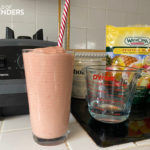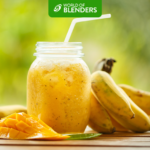This post may contain affiliate links. If you use these links to buy something we may earn a small commission. Thanks.
You want to add healthy smoothies to your daily routine, as you know that they represent a fantastic option for hitting your daily nutrient goals. Not to mention, they can be super delicious too.
However, one of the first questions you might find yourself asking is which is the best milk for smoothies? And do you even need milk at all?
The great news is that there are plenty of delicious milk or milk-alternative options to use in your blender when making smoothies. We’ll cover all of them today, and also touch on other types of liquid to use in smoothies too.
But first, let’s explore the best milk for smoothies, depending on your taste and dietary requirements.
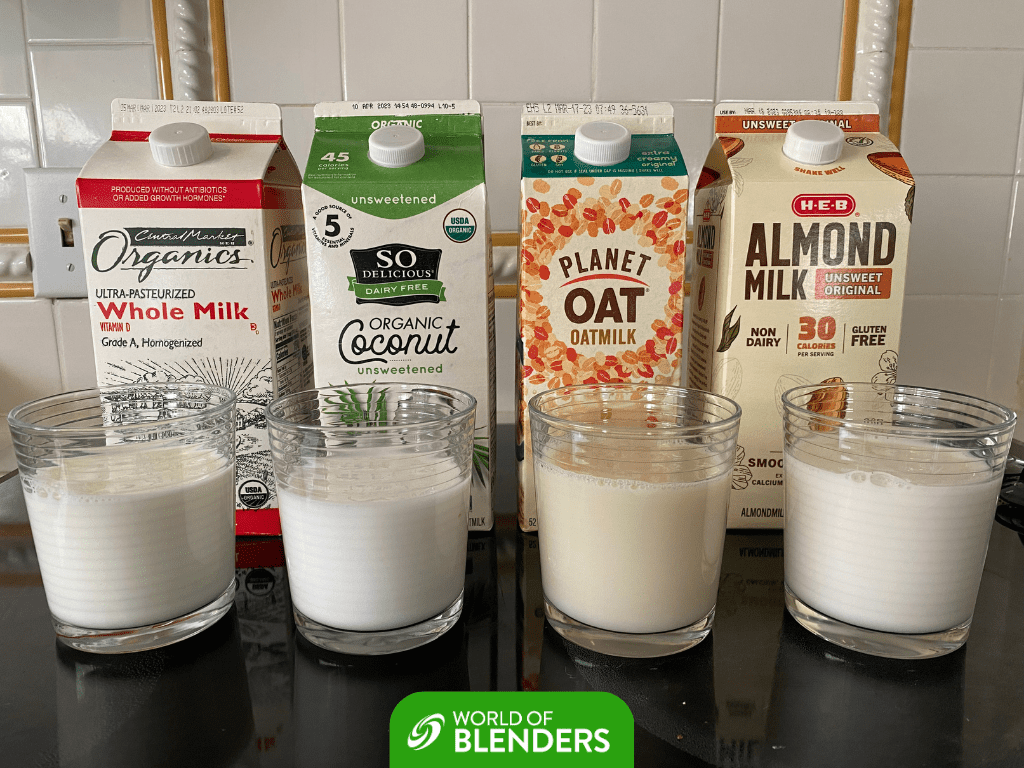
Comparison Chart: Different Kinds of Milk for Smoothies
| Type of Milk | Dairy or Dairy Free? | Calories per 1 cup* |
| Regular dairy milk (2%) | Dairy | 120 |
| Nut milk | Dairy free | 60 |
| Soy milk | Dairy free | 100 |
| Rice milk | Dairy free | 140 |
| Oat milk | Dairy free | 90 |
| Seed milk | Dairy free | 60 |
| Coconut milk | Dairy free | 80 |
7 Best Kinds of Milk for Smoothies
Everyone has their own unique tastes, goals, and dietary preferences for their smoothies—and these should be considered when choosing the best milk to mix with your smoothie.
If you’ve never explored the milk aisle of your go-to grocery store, you might not realize how many different kinds of milk there are.
Beyond traditional dairy milk, there are tons of dairy-free milk options. We’ve even put together a full list of dairy free smoothie recipes!
Here’s an overview of the most popular kinds of milk.
Dairy Milk
The most popular kind of dairy milk for smoothies is cow’s milk, although goat’s milk or sheep’s milk could be used too. Dairy milk is usually available in a few different forms, including full-fat milk, reduced-fat milk, and fat-free milk, which makes it great for a wide range of dietary requirements.
Dairy milk is simply one of the best liquids for smoothies and whole milk is the best option for making thicker smoothies!
Milk is naturally high in calcium, protein, B vitamins, potassium, and phosphorus. However, it won’t suit people who are sensitive to lactose or who follow a vegan diet.
If you make smoothies without yogurt, I recommend using dairy milk!
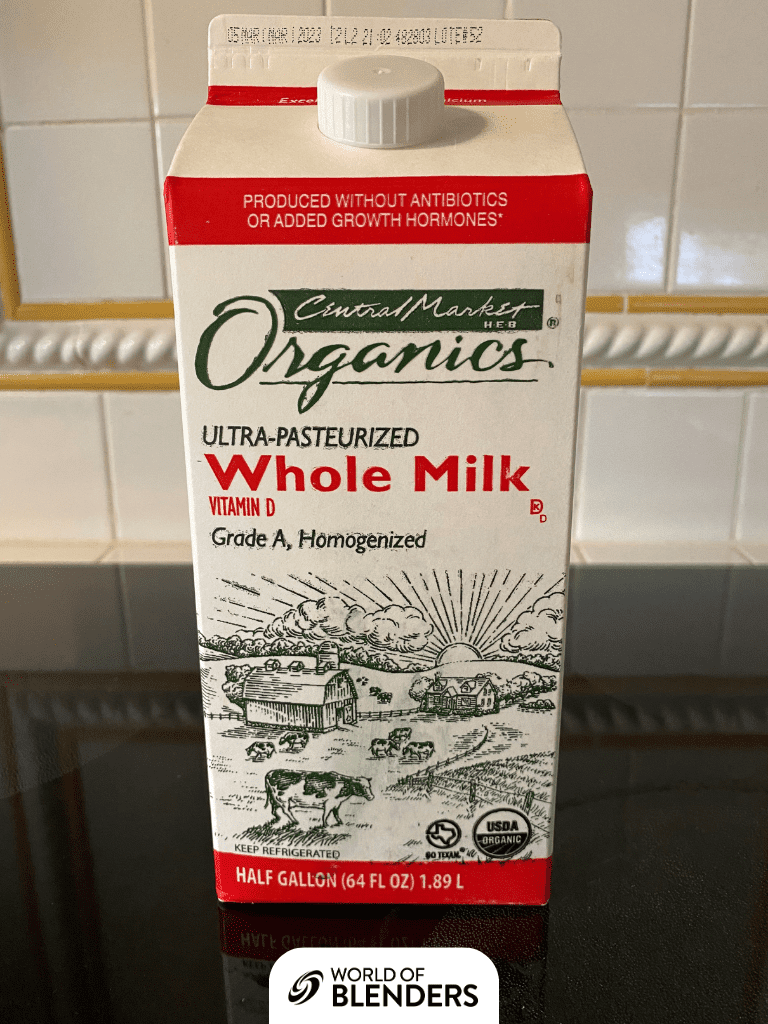
Nut Milk
Nut milks are made by grinding nuts into a very fine paste and combining the paste with water. Nuts are a brilliant source of protein, healthy fat, vitamins, and minerals, so milks made from nuts offer a highly nutritious and tasty addition to smoothies.
Using a creamier option like almond milk will help keep your smoothie from separating and prevent foamy smoothies!
Some nut milks have extra vitamins added to them during processing and some are also sweetened or flavored, so it’s worth reading the label. Popular nut milks include almond milk and cashew milk.
Check out our full list of almond milk weight loss smoothies!
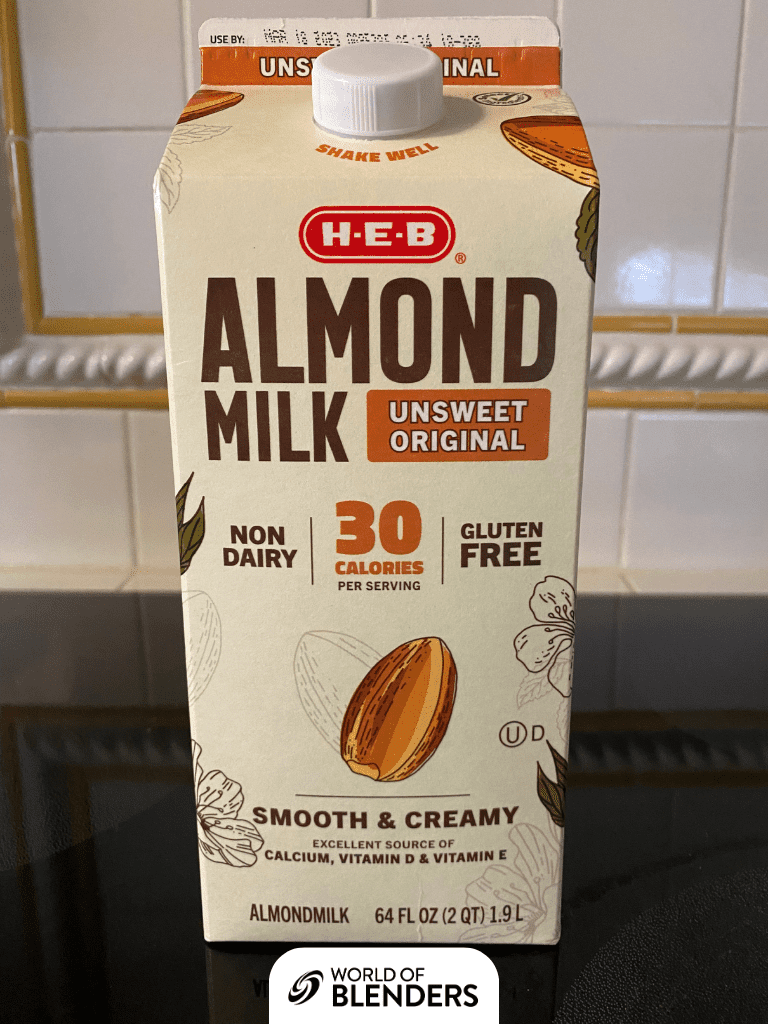
Soy Milk
Soy milk is made from the beans of a soybean plant.
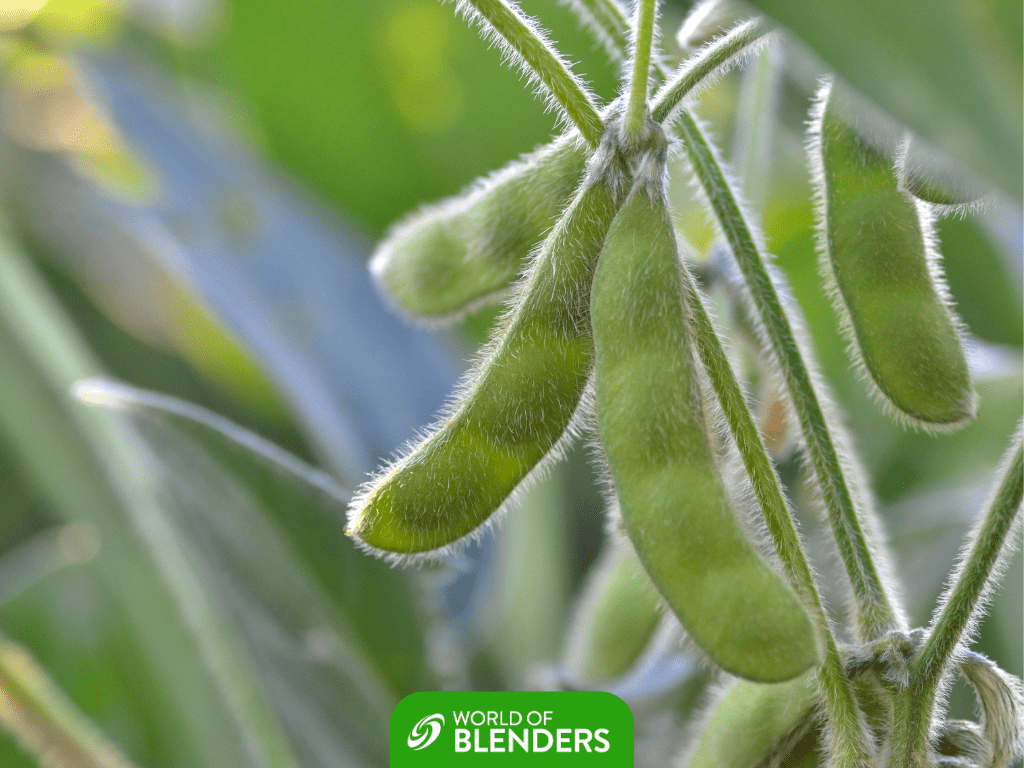
To make soy milk, soybeans are soaked in water, and then the mixture is ground, heated, and filtered. As with nut milks, soy milk is often fortified with extra vitamins and minerals, and sometimes sweetened and flavored too.
Soy milk is the most popular milk made from legumes, but there are others too, such as pea milk and garbanzo bean (chickpea) milk. These kinds of milk are all good sources of protein.
Rice Milk
Rice milk is made simply by combining ground rice and water and then filtering it. Commercial rice milk is often fortified with extra vitamins and sometimes sweetened and/or flavored.
Rice milk contains more carbohydrates but less protein and calcium than dairy milk. Rice milk is a bit more watery so it will make your smoothies thinner!
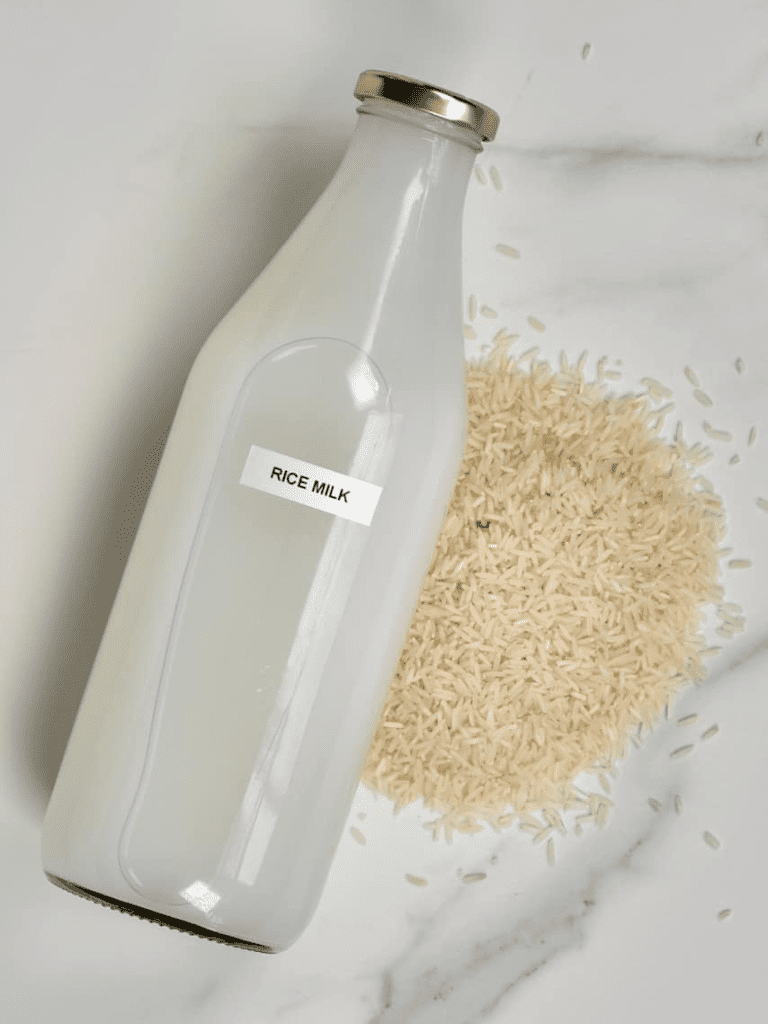
Oat Milk
To make oat milk, whole oat grains are blended with water and then strained to remove excess fiber. The result is a silky, creamy milk with a flavor similar to oatmeal. It’s my personal favorite dairy-free milk! Oat milk is known for making smoother smoothies!
Some oat milk is flavored, sweetened, and fortified. This type of milk is higher in carbohydrate and lower in protein than cow’s milk. Oat milk can be a great way to sweeten a smoothie.
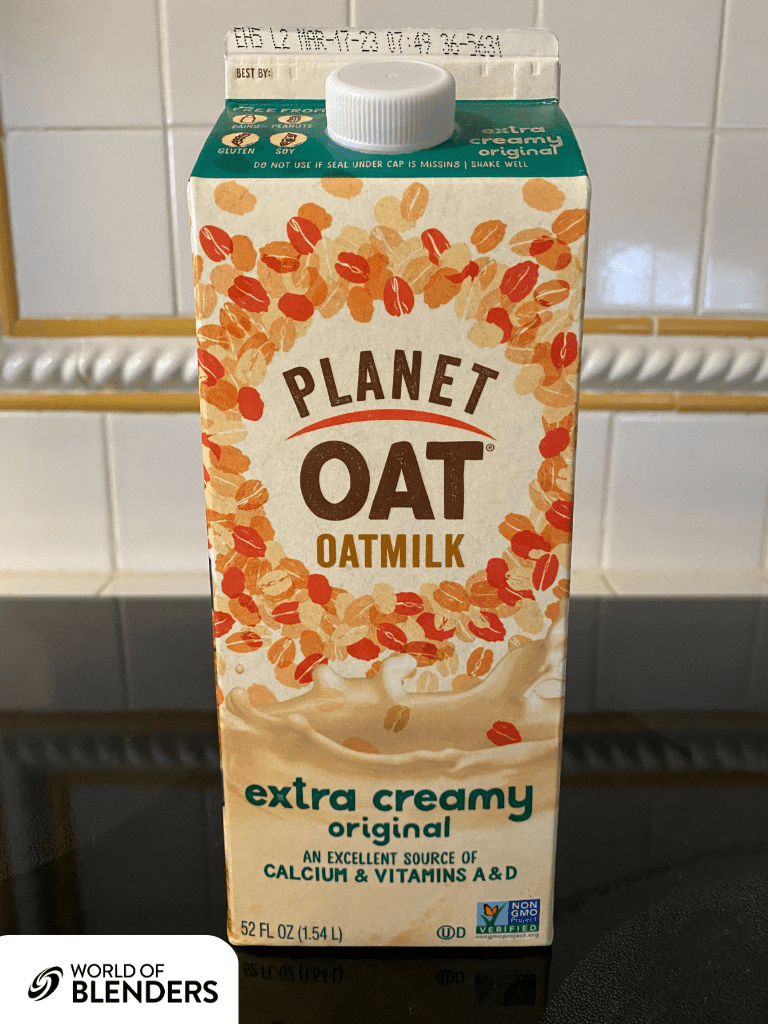
Seed Milk
Similar to nut milk, seed milk is an excellent source of protein and healthy fats. It is made by blending ground seeds and water. Some are also flavored or sweetened.
Popular seed milks include hemp milk, flax milk, and chia milk.
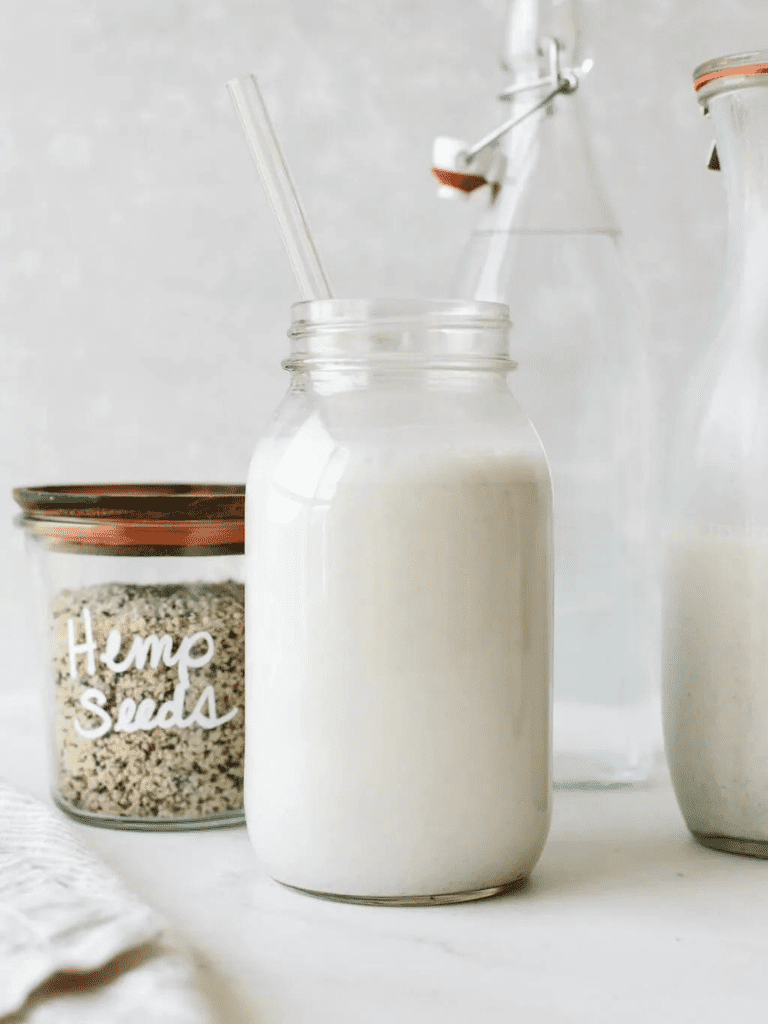
Coconut Milk
Creamy-textured coconut milk is made by extracting liquid from the grated pulp of mature coconuts. It shouldn’t be confused with coconut water, which is the liquid found in the center of a coconut. It is neither the coconut milk in a can that is thick and often used for asian dishes. It’s one of the best substitutes for yogurt in smoothies!
Coconut milk is one of the best liquids if you’re trying to figure out how to make a smoothie creamy.
Coconut milk contains several micronutrients, including manganese, magnesium, and iron. It may be higher in fat content than most other kinds of milk due to the coconut fat. Coconut milk contains medium-chain triglycerides—a type of saturated fat that has been associated with a number of health benefits.
Coconut milk is super popular in our list of NutriBullet weight loss smoothies and for whole30 smoothie recipes!
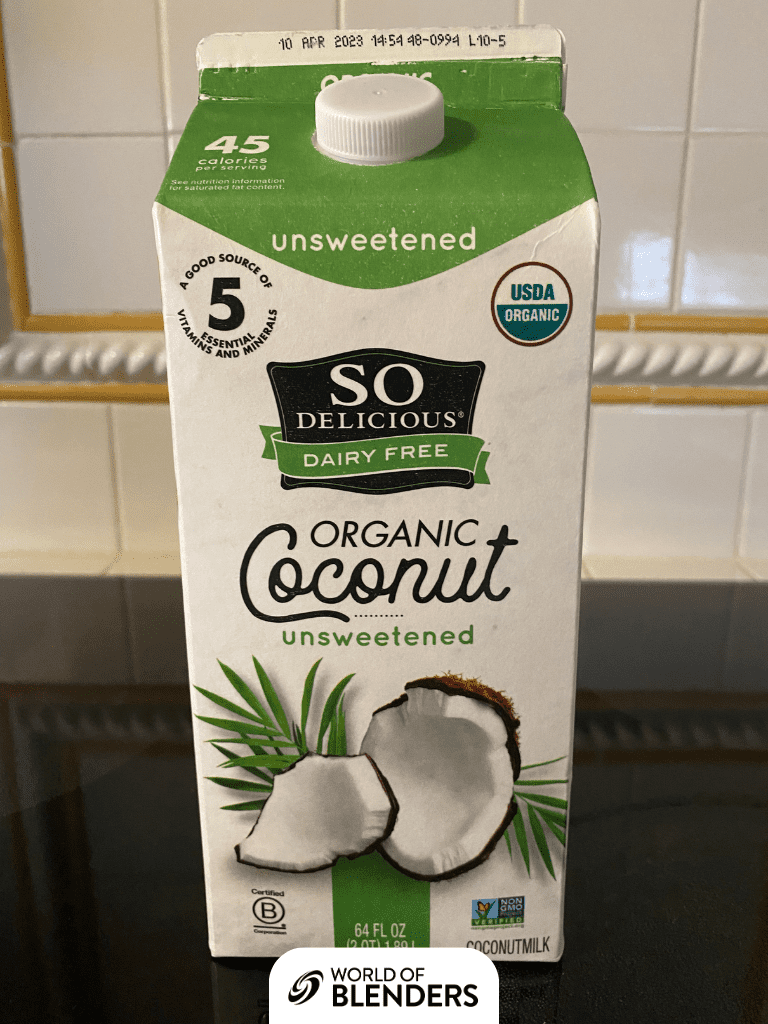
Choosing The Best Milk for Smoothies by Type
Whatever your goals when making smoothies, there’s a liquid base that complements them perfectly. The good news is that the type of milk doesn’t impact how long smoothies last in the fridge.
Below you’ll discover a comprehensive list of milk types for a diversity of smoothie styles. Beyond, you’ll find a quick guide to matching milk type to popular smoothie flavors.
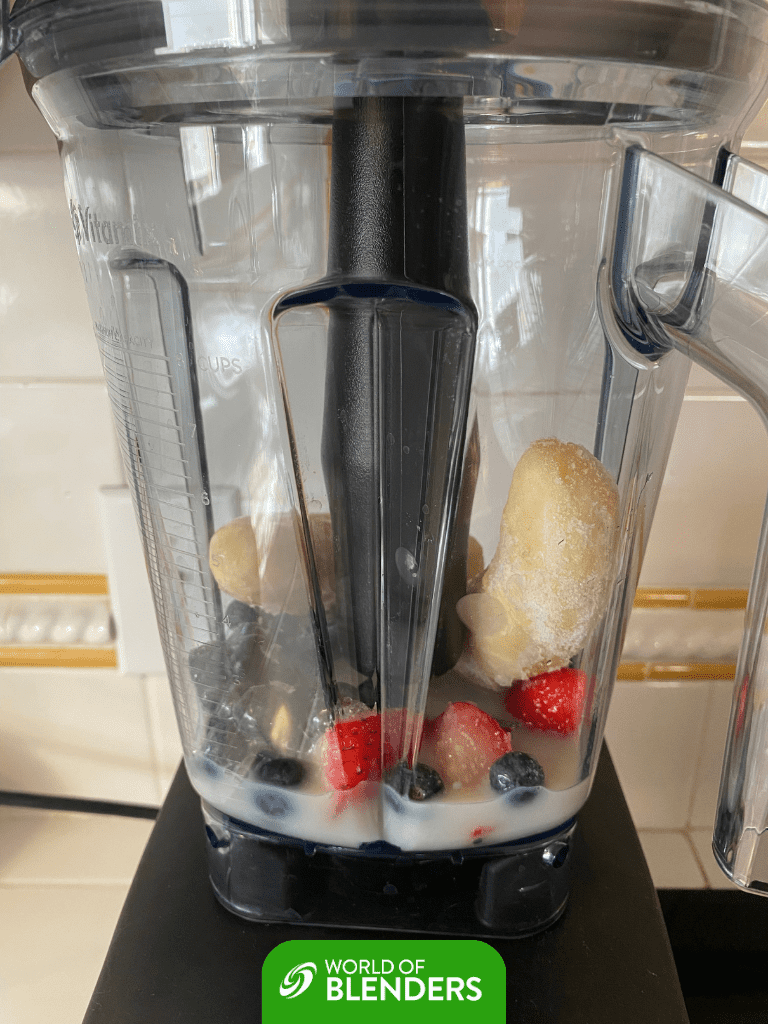
Dairy Milk for Smoothies
Dairy milk can be an excellent source of protein, calcium, and vitamin B. However, if you are celiac or find that the lactose in dairy products irritates your gut then skip these options in favor of others further down our list.
- Fat-free milk
- Reduced fat milk
- Whole or full-fat milk
If you’re making breakfast smoothies for weight loss, then dairy milk is the easiest option!
Keep in mind that the higher the fat content of your chosen dairy milk, the higher the calories are going to be. If weight loss is your goal, fat-free milk is a better option.
If you’re trying to bulk up, whole milk will be a tasty, creamy contribution to your top smoothie recipes.
Vegan Milk for Smoothies
If you aren’t a fan of dairy, you follow a vegan lifestyle, or you simply prefer the taste of milk alternatives, then some of these suggestions should be on your smoothie-making bucket list!
- Almond milk
- Soy milk
- Rice milk
- Hemp milk
- Chia milk
- Cashew milk
- Coconut milk
- Oat milk
- Pea milk
- Macadamia nut milk
More so than dairy, these different milk-alternatives offer a wide range of nutrients. For example, oat milk can provide healthy carbs while soy milk is richer in protein.
Many of these are used in our list of kale smoothies to make them vegan friendly!
Just remember that many milk alternatives are sweetened to enhance their flavor. If you don’t want to add sugar or artificial sweeteners to your smoothies, be sure to read the labels carefully.
Keto Milk for Smoothies
If you are following a ketogenic diet, you’ll know that consuming too many carbohydrates is a surefire recipe for kicking yourself out of ketosis. However, perhaps surprisingly, it is entirely possible to make keto-friendly smoothies.
To do this, go for more vegetables than fruits and look for unsweetened versions of the following milk-alternatives:
- Almond milk
- Coconut milk
- Flax milk
- Soy milk
- Cashew milk
- Pea milk
- Chia milk
- Macadamia nut milk
A lot of these non-dairy options are popular on our list of the best colon cleansing smoothie recipes as well!
Low-calorie Milk for Smoothies
If you’re using the blender as part of a weight-loss or weight-maintenance programme then you’ll want to explore these low-calorie options – while always ensuring that you reach for the unsweetened versions.
- Non fat milk (36 calories per 240ml)
- Almond milk (60 calories per 240ml)
- Cashew milk (25 calories per 240ml)
- Soy milk (100 calories per 240ml)
- Pea milk (100 calories per 240ml)
Just keep in mind that nutritional content is supplied only as a guide and will vary from brand to brand. The majority of our cheap smoothies for weight loss use a low calorie milk option. These are also popular for our weight loss green smoothies and our paleo smoothie recipes!
High Protein Milk for Smoothies
If you’ve been working hard in the gym and want to support optimal muscle recovery, your smoothies can certainly help. As well as adding protein powder to the blender, you should also consider using these milk types.
- Pea milk (8g of protein per 240ml)
- Dairy milk (8g of protein per 240ml)
- Soy milk (7g of protein per 240ml)
- Almond milk (1g of protein per 240ml)
- Flax milk (8g of protein per 240ml)
These are the best milks for making high protein smoothies without protein powder!
High-calorie Milk for Smoothies
If you’re looking to gain some mass, which is the best milk for smoothies? There is a lot to be said for getting in more protein when aiming to gain weight in a healthy way, but if your metabolism runs high and you want to cram in the calories, consider these options.
- Whole fat milk (150 calories per 240ml)
- Coconut milk (80 calories per 240ml)
- Sweetened milk alternatives (calories vary)
These milk options are perfect for making high calorie smoothies or meal replacement smoothies!
Pairing the Best Milk for Your Smoothies by Recipe
By now, you can see that there are plenty of milk types to choose from when creating your dream smoothie, but what about pairing for the right flavor combinations?
- Dairy milk – Smoothies that work well with dairy milk include banana smoothies, strawberry smoothies, oat smoothies, berry smoothies, peanut butter smoothies, and chocolate smoothies.
- Tropical smoothies – Smoothies that include tropical flavors can work with both dairy and non-dairy milks, but coconut milk will really make them pop—imagine a healthy, alcohol-free pina colada!
- Green smoothies – Green smoothies, citrus smoothies, and ginger-infused smoothies don’t work so well with dairy milk. For these, you can try alternative milks but you may find that they are more refreshing if you skip the milk entirely.
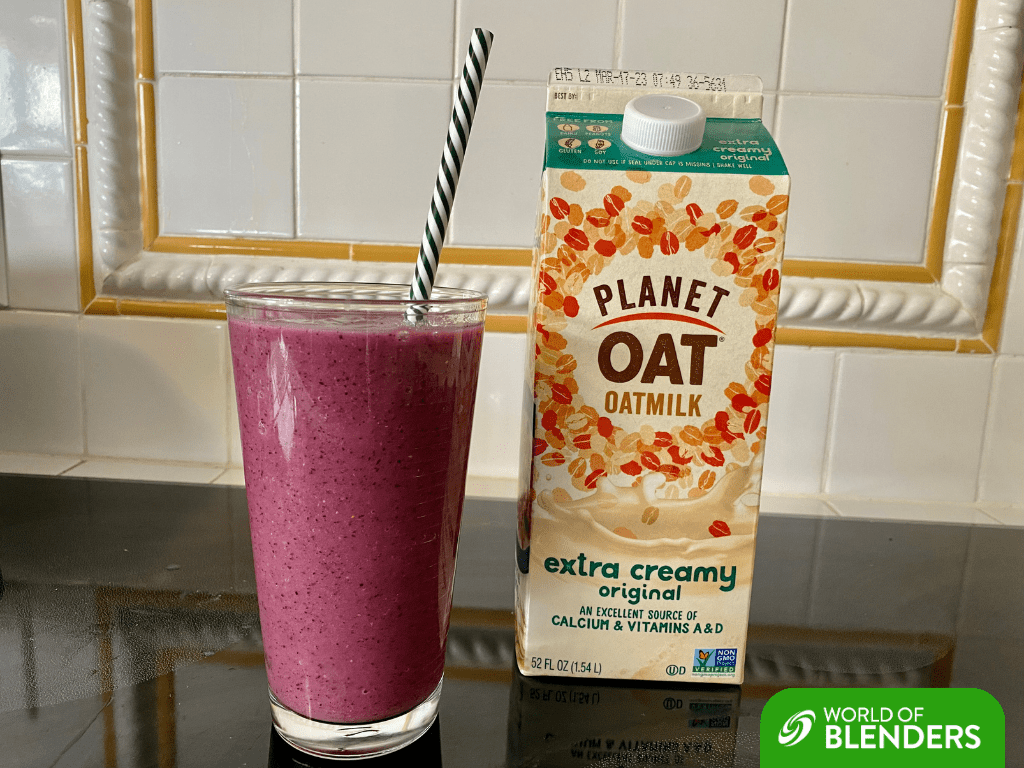
Common Questions About Milk for Smoothies
The best milk for fruit smoothies is regular milk! If you want to save on calories use skim milk or 2%. If you’re trying to gain weight, use whole milk. Regular milk will let the flavor of the smoothies shine through and it will provide a creamy texture.
The healthiest milk to use in smoothies would be cashew milk (18 calories) or almond milk (22 calories). These are super comparable to regular skim milk (36 calories).
Regular milk is great for fruit smoothies or green smoothies while almond milk might be a better fit for anything that’s nut based or has peanut butter added. Almond milk is also lower in calories and is a non-dairy alternative to regular milk.
What if You Don’t Want to Use Milk in Your Smoothie?
If milk isn’t really your thing or you’re imagining more of a zesty, sharp smoothie flavor, there are other options to consider.
Why not try using fruit juice, cooled ginger tea, coconut water, or probiotic-rich kombucha in your next smoothie?
Of course, many recipes will work well with water alone. As long as the liquid-to-ingredients ratio is just right and you’ve nailed your flavors, your smoothie is bound to be delicious!
